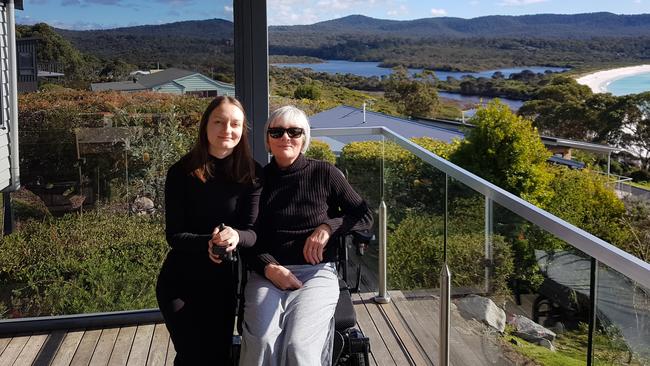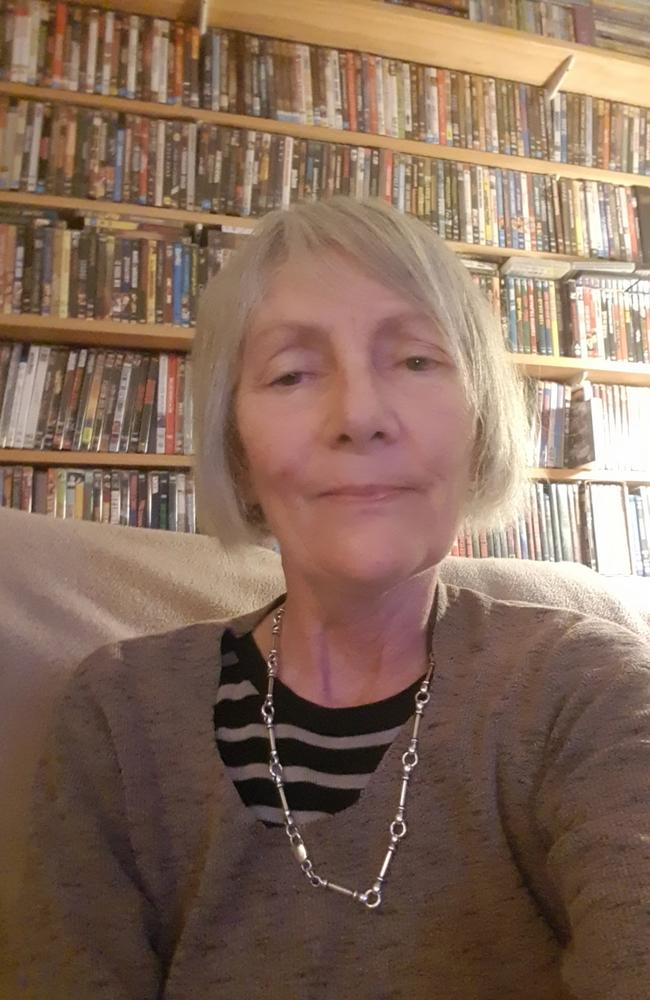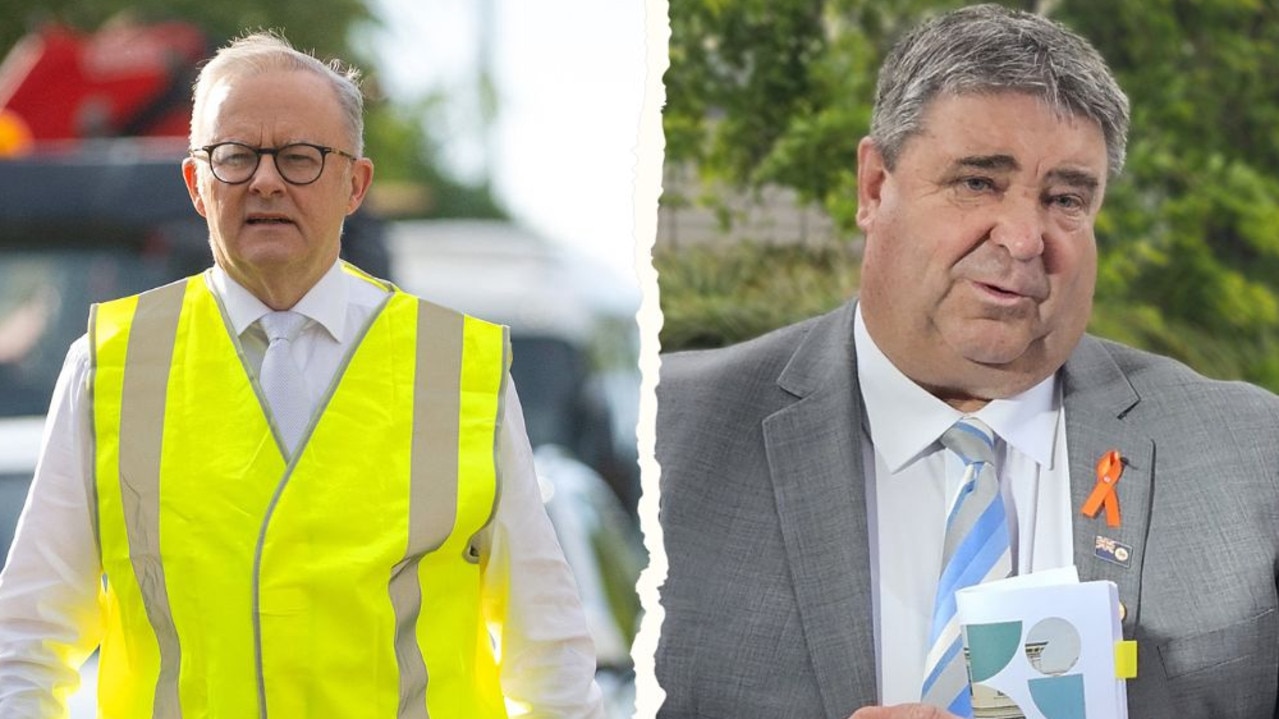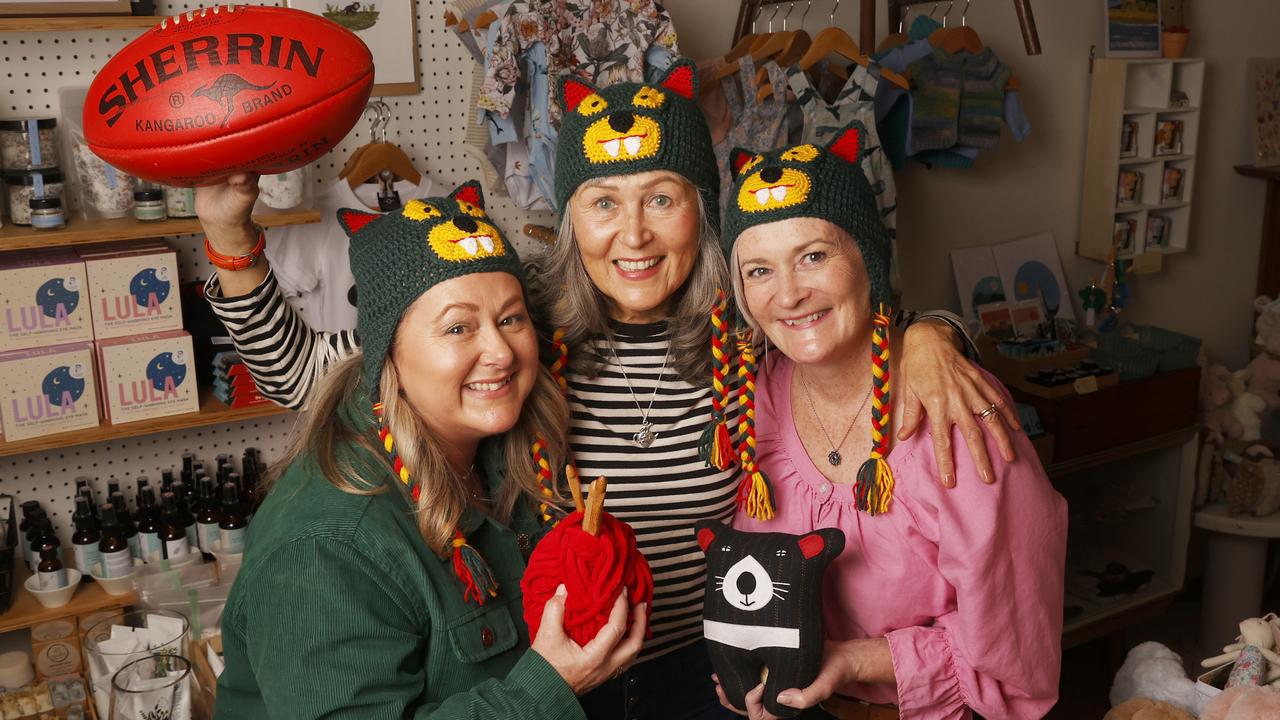Survivor Deborah Thomson’s warning on lasting effect of abuse
Deborah Thomson got out of a violent relationship after nearly 20-years marriage. She has one simple message to others in abusive situations, ‘get out’, saying there’s hope on the other side.

Tasmania
Don't miss out on the headlines from Tasmania. Followed categories will be added to My News.
Deborah Thomson from Burnie knows the long arm of complex trauma all too well.
For 18 years, she endured a violent relationship that left her with repeated head injuries, chronic stress and ultimately, multiple brain aneurysms requiring neurosurgery.
It wasn’t until her surgeon made a chilling observation that Ms Thomson learned the truth: these life-threatening aneurysms were likely the result of years of abuse.
Both she and her daughter were later diagnosed with complex trauma due to years of violence and manipulation.
“The quicker you leave, the less risk of developing complex trauma,” she says.
Most of Ms Thomson’s injuries occurred in the 1980s and 1990s, a time when, as she puts it, “no one” seemed interested in the cumulative impact of long-term trauma.

Today, however, research is uncovering the lasting effects of complex trauma, showing that sustained abuse — whether from family violence, neglect, or sexual abuse — rewires the brain, affecting memory, emotions, and relationships.
Studies show that adult survivors face a higher risk of mental illness, substance abuse, and physical health issues.
The Blue Knot Foundation estimates that nearly five million Australians live with the effects of complex trauma, often carrying these impacts throughout their lives.
Now an advocate for the Blue Knot Foundation, Ms Thomson is dedicated to raising awareness, even writing three books, including a memoir, to help others recognise abuse.
“Until all of society holds abusers accountable, they won’t stop, and we’ll keep seeing more victims with fewer resources to help them,” she says.
In 2022, she successfully campaigned for Tasmania to pass a law recognising non-fatal strangulation as a distinct offence — a critical step forward in addressing abuse, she says.
Strangulation, she notes, was something she was all too familiar with during her marriage.
Ms Thomson believes that practical steps, such as accessible refuge housing, public awareness of abuse warning signs, and government-funded security measures such as personal security cameras, are crucial for helping people leave abusive situations earlier.
She also emphasises the importance of identifying trauma-linked behaviours for what they are, as long-term trauma can cause behaviours that resemble substance abuse and difficult personality traits.
Like many survivors, Ms Thomson recalls concealing her abuse, making excuses like “falling down the stairs.”
Living in a small town where her abuser’s social circle was her only connection, she felt isolated and unable to escape.
“I just wanted to keep everything quiet and hidden and just survive,” she remembers.
Now, Ms Thomson’s message is simple: “Leave as early as possible. Trauma compounds the longer you stay.”
But she also wants victims to know there’s hope.
“It’s possible to rebuild your life, even after all of this, it’s incredible but I did manage to leave after nearly 20 years. I finally got out.”
For those affected by complex trauma, the Blue Knot Helpline offers specialist support every day from 9am to 5pm at 1300 657 380.


